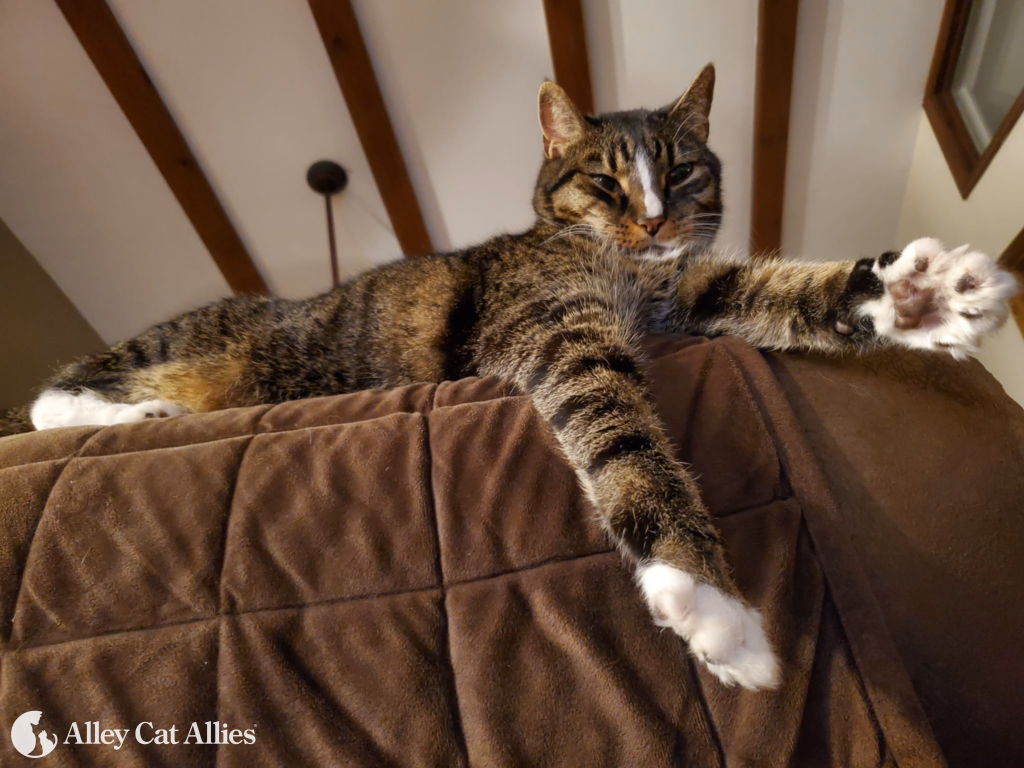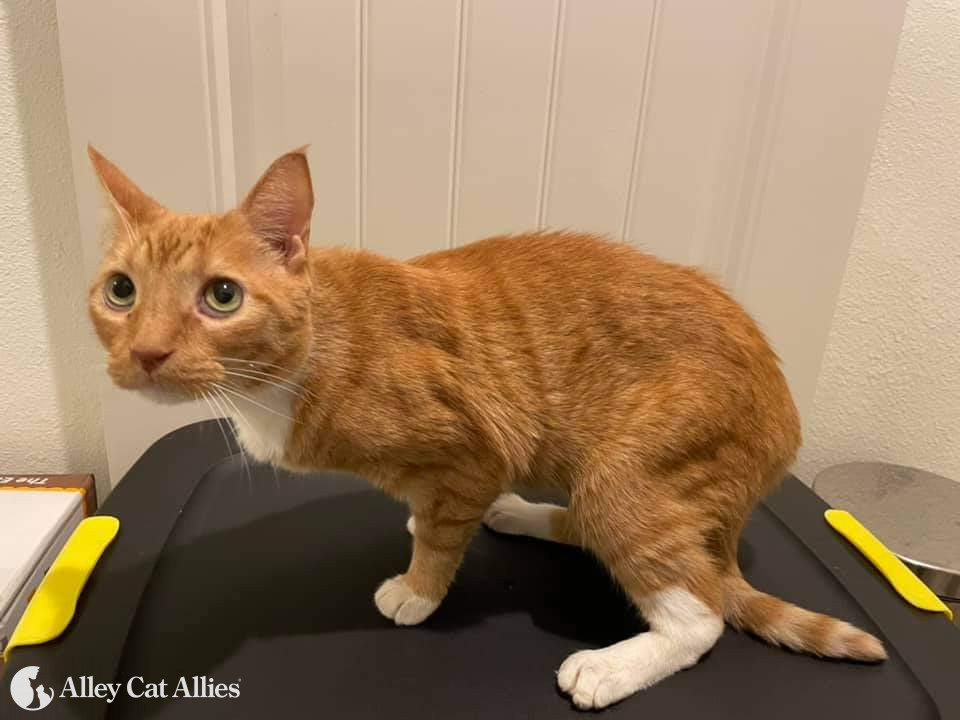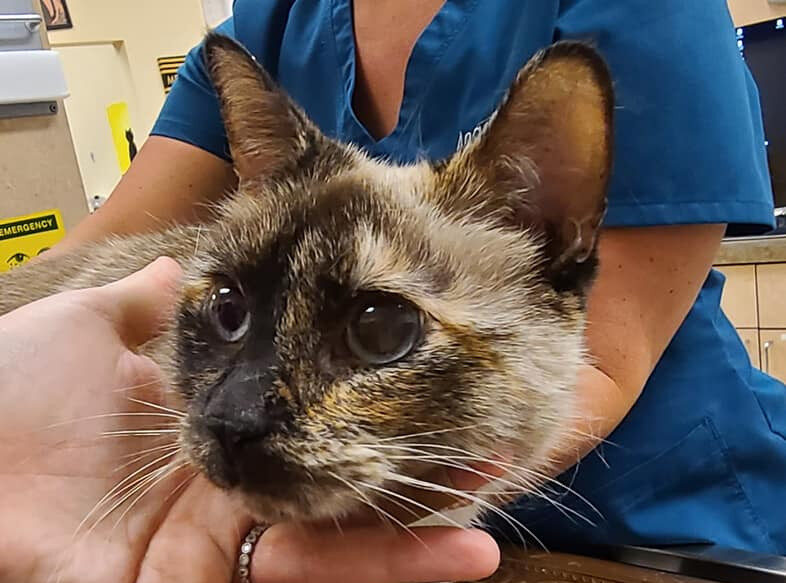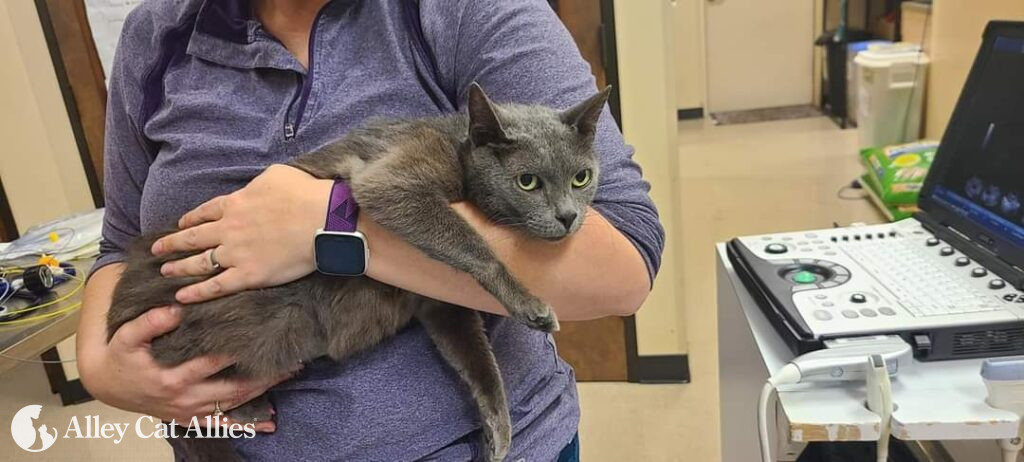Alley Cat Allies is working with The Paw Project to not only end cat declawing through legislation, but provide surgery and other treatment to help cats suffering from long-term harmful effects of their declaw.
When we say declawing is far from a nail trim, we mean it. Removing a cat’s claws involves removing bone, akin to cutting a person’s finger off at the last knuckle. The procedure is inherently severe, and many of the typical ways it is performed can leave cats with crushed bone fragments in their paws or abscesses caused by the nail trying to grow back under the skin.
The result: Cats suffering from lifelong painful symptoms. We cannot restore a declawed paw—the damage cannot be undone. But surgery to remove any bone shards and treat abscesses, with the right pain management afterwards, can alleviate cats’ suffering and give them their life back.
Alley Cat Allies’ grant has already given multiple cats a new, pain-free start—and in many cases, a loving home after they were abandoned for behaviors caused by declaw pain. These are just some of their stories:
Burrito
14-year-old Burrito looks like a million bucks today, but it’s not long ago that he was in severe pain from being declawed on all four paws. That pain caused him to act “aggressive,” so he lost his home and was on the way to almost certain death in a shelter. But thanks to Alley Cat Allies’ grant to The Paw Project, Burrito received the right pain management and surgery to salvage his paws as much as possible.
Burrito’s “aggression” stopped almost immediately after being placed on pain medication. To relieve his symptoms long term, Dr. Michal Hess performed surgery to remove a large mass and bone shards left from his declaw. The mass was a cancerous sarcoma, which was completely excised. A pathologist noted that it was likely related to the declaw and the unrelenting inflammation in Burrito’s paw.
Burrito is nothing if not a fighter, and he recovered from surgery beautifully! He’s a brand-new cat and is living his best life in his new home in Brooklyn, New York. Over a decade after his declawing, he’s finally comfortable.
Sammy
Sammy has come so far from when he was first found abandoned in an apartment complex, hunched over, sick, alone, terrified of people—and in horrific paw and back pain from being declawed on all four feet.
A local rescue in Houston, Texas, took Sammy in and had him evaluated, during which a veterinarian discovered infection and swelling in his toes that was causing him immense pain. But thanks to Alley Cat Allies’ grant to The Paw Project—powered by our incredible supporters—Sammy received the surgery he needed to treat his paws as best as possible.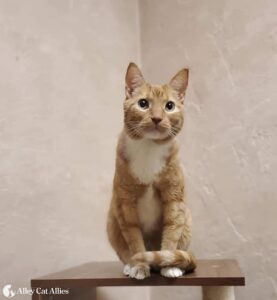
The surgery removed multiple painful bone fragments and drained the pus from abscesses in all 18 toes. Though what he went through was unimaginable, Sammy started IMMEDIATELY feeling better after surgery! He showed his true, sweet colors right away and continued to come out of his shell in his foster home. No longer facing chronic pain and sickness, he doesn’t shy away from people anymore. In fact, he’s very loving and friendly.
Sammy is now his true self again and has since been adopted into a loving home with a new feline friend.
Macy
Macy, who is 8 years old, was adopted as a declawed adult. At first, all was well in her new home. Then, she started excessively grooming to the point of pulling out all her fur—which, in cats, is a sign they are in pain. Her family also said she started becoming “aggressive,” attacking their ankles without provocation.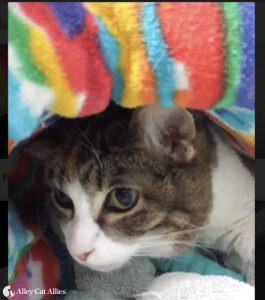
To help her, Macy was placed on several mood and pain relief medications. But the real solution was only apparent after she was seen by Dr. Nicole Martell-Moran at the Feline Medical Center in Houston, Texas. Macy was radiographed, and the cause of her suffering was revealed: She had bone remnants in all of the toes on her front feet caused by her declaw as a young cat. She’d also developed arthritis as a result.
With her family’s blessing, Macy underwent surgery to remove the bone fragments and salvage her paws as best as possible—with costs covered by Alley Cat Allies. She recovered beautifully, and all of her over-grooming and aggression disappeared. Now Macy can live with her family in peace and without pain, like she’s always deserved.
Coco
Coco, 9 years old, was yet another cat declawed on all four paws. When she became less interactive and responsive to the family who declawed her, they decided to drop her at the local shelter and adopt a new kitten instead.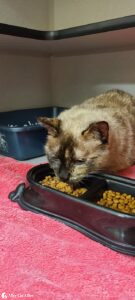
But Coco had a light at the end of her tunnel. A volunteer at Texas Special Needs Rescue saw her and knew she deserved a chance. She was placed in a foster home with an attentive foster caregiver, who noticed right away that Coco refused to jump onto beds or furniture. Knowing the cause was likely pain from her declawing, Coco was brought to the veterinarian for an evaluation.
X-rays showed very large bone fragments in all four declawed feet that required surgery to remove. Funded by Alley Cat Allies’ grant, the surgery went smoothly, and Coco made a full recovery.
Unsurprisingly, Coco’s “grumpy” demeanor faded away along with her pain. She became more social and affectionate, playing like a kitten for what may have been the first time in her life. Not long afterwards, Coco was adopted by a loving family, who say she’s the queen of the house!
Essex
Sweet Essex lost her home after she was declawed because she avoided the litter box due to the pain in her paws. Languishing in a shelter, she faced almost certain death until a volunteer familiar with the consequences of declawing stepped in.
The volunteer knew that behaviors caused by the pain in her paws was almost certainly the reason Essex was abandoned. They also knew that Alley Cat Allies had a grant to cover the costs of paw salvage surgery.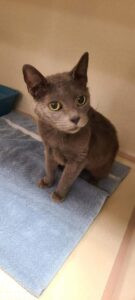
Within days, Essex was on her way to the veterinarian. Her feet were excruciatingly painful due to infection and irritation caused by three large bone shards in her paws—remnants of the declaw procedure. The shards were surgically removed, and within hours, it was clear that Essex was already feeling relief.
And Essex’s bathroom issues? A thing of the past! She chose to use the litter box again almost right away after recovery—and continues to have no problems doing so in her new adoptive home.
Essex’s new family is thrilled to have her and aghast that she could have been killed because she was in pain from a procedure she never needed or deserved.
Cory
Five-year-old Cory was discovered alone outdoors after being abandoned by his family. Emaciated and ill, it was obvious Cory was suffering from being declawed on his front feet. But even after all he endured, he was still incredibly sweet. The good Samaritan who found him fell in love with him right away and promptly took him in. 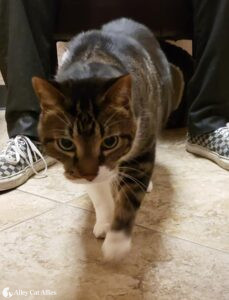
As his new foster father nursed him back to health, he soon realized why Cory may have lost his home: he would not use the litter box. He was also aware that pain from his declawed paws was most likely the reason, and pursued treatment immediately.
Alley Cat Allies’ grant came through to save the day again! An X-ray revealed that Cory had very large bone fragments caused by his declaw still wreaking havoc in his paws. Some nails were even growing back in crooked, piercing the skin and leading to infection and abscesses.
We covered the costs of surgery to remove the issues, and Cory is now living pain and infection free! But though he was more willing to step in a litter box again, he still avoids it at times. Thankfully his foster dad loves him no matter what—and decided to become his permanent dad! He is grateful for all Alley Cat Allies, our supporters, The Paw Project, and skilled veterinarians have done to give Cory the life he deserves.
While these stories are heartwarming and inspiring, the real goal is to ensure no cat ever has to endure the long-term pain and suffering of declaw surgery. Alley Cat Allies is continuing to support laws and policies that outlaw cat declawing and rally advocates to join the fight. Watch our Action Center for ways you can act and share our resources about declawing.


